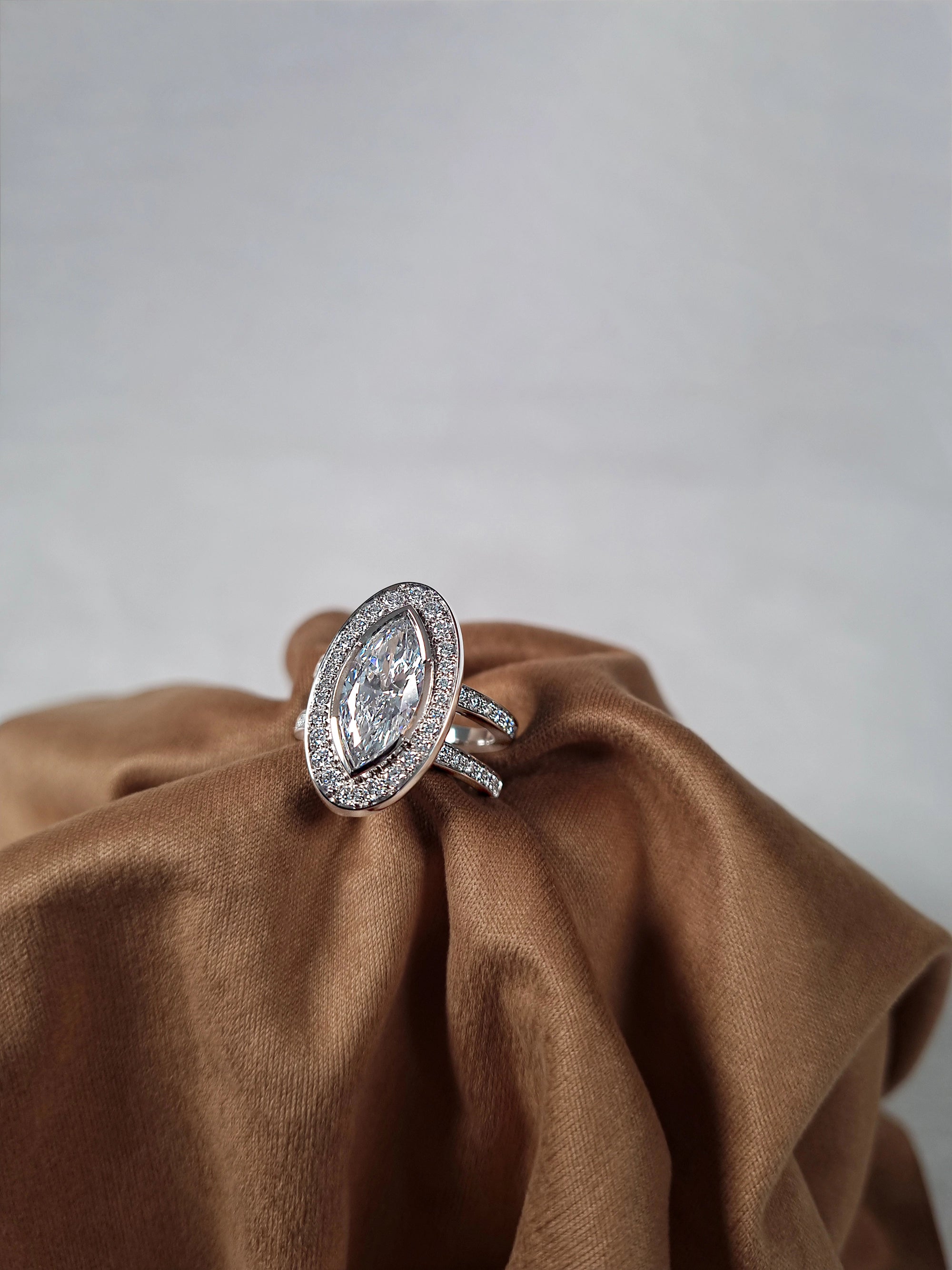Jewellery Care

In caring for your jewellery, it is important to understand the vulnerabilities of precious metals and stones, and to apply reasonable care in day to day use. To carefully maintain your precious piece, we recommend avoiding exposure to any impact, pressure or extreme temperatures. Metal, gemstones and even diamonds can crack or chip upon impact with the wrong object. Chemicals and some household substances can weaken metal or damage gemstones, even if not immediately apparent.
The most important factor in caring for your fine jewellery is understanding appropriate usage. As much as we want you to love and enjoy wearing your jewellery, it is important to remove your jewellery when:
- showering or bathing
- sleeping
- applying cosmetic products or perfumes
- exercising
- cooking, washing up, cleaning
- swimming
- doing any hands-on work, where your jewellery might be exposed to chemicals or force.
Depending on what your professional life entails, you will need to carefully assess whether your piece should be worn during working hours.
Gemstones
Pieces with gemstones require extra care. Assuming you wear them regularly, we recommend you have the stones checked every year by a professional to ensure that they are not loose. You can also check this at home by gently tapping the surface of the stone and watching for any movement, or listening for any clicking (this should be avoided for soft stones such as opal or moonstone). If you suspect any damage or a loose stone, refrain from wearing the piece until it can be checked professionally.
Special care stones
Special care stones include but are not limited to opals, moonstone and emeralds. These stones are soft and fragile, and therefore require special care and usage. Opals should be stored in a soft cloth and should not be exposed to hot water or rapid changes in temperature.
Diamonds
Diamonds are among the hardest materials on earth, but this does not make them invincible, especially if they are set in a fine setting. Diamond pieces need meticulous care and regular checking. Wearing them according to the care instructions described above is imperative. Loose diamonds can damage the metal of the settings, so we recommend professional checking of diamond solitaires every 6 months for tightness. This is a service we provide free of charge.
Micro Pave
Fine, micro pave bands should be worn with care at all times to avoid loose stones. Check your ring regularly for any signs of this happening. Pronounced “pa-vay,” pavé originates from the French word “to pave” — in this case, as in paved with diamonds. In a pavé setting, small diamonds line the band. The metal prongs or beads that hold the diamonds in place are barely visible.
Cleaning
Polish your jewellery with a soft cloth. Stone pieces (excluding special care stones) can be cleaned using warm soapy water and a soft toothbrush. Cleaning is a good time to check over your piece and check the tightness of the stone settings. We offer complimentary cleaning of custom engagement pieces every 12 months. This is encouraged and is especially important for white gold pieces which require rhodium plating every 12-18 months.